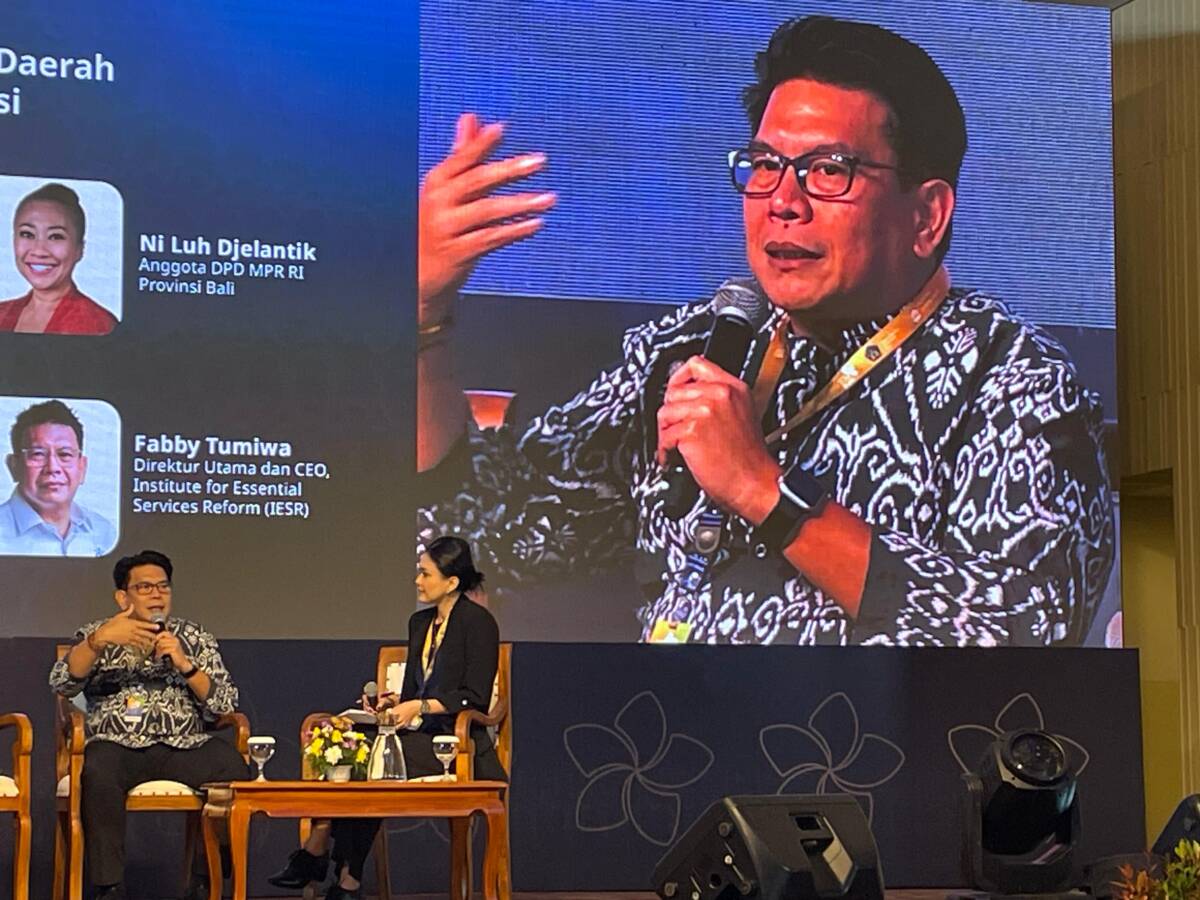Denpasar, August 25, 2025 – “With the dominance of the tourism sector, electricity demand in Bali is expected to continue to grow until 2045–2050. Therefore, in addition to calculating energy needs, it is important to prepare infrastructure that supports the transition to clean energy. The most realistic solution is to utilize rooftop solar power plants (PLTS),” said Fabby Tumiwa, Chief Executive Officer (CEO) of the Institute for Essential Services Reform (IESR) at the National Forum: Opening Session and Plenary of Bali Climate Week on Monday (August 25, 2025).
Fabby highlighted Bali’s commitment to achieving Net Zero Emissions (NZE) by 2045, 15 years earlier than the national target of NZE 2060. He stated that the first step to achieving this target is ensuring the availability of renewable energy sources. Studies show that Bali has significant renewable energy potential, particularly from solar power.
“Other sources, such as geothermal energy, do exist, but their development has been rejected by the community since the 1990s for social and cultural reasons. The case of the Bedugul Geothermal Power Plant (PLTP Bedugul) is proof that the energy transition must be carried out equitably, meaning that it is not only environmentally fair but also aligned with local values,” said Fabby.
Furthermore, Fabby explained that Bali’s electricity supply is currently dominated by centralized fossil-fueled power plants, such as the Celukan Bawang Coal-fired Power Plant (PLTU Celukan Bawang) and the Pesanggaran Gas-fired Power Plant (PLTG/PLTD Pesanggaran). In the future, the electricity system can no longer rely on a centralized model but must be distributed.
“With the support of increasingly affordable battery technology, rooftop solar power plants (PLTS) can be equipped with energy storage of at least 20 percent of their capacity to maintain system reliability. In fact, if developed on a larger scale, this network of small power plants could function as a virtual power plant, which is both flexible and efficient,” Fabby emphasized.
Fabby acknowledged that questions often arise regarding the costs of making the energy transition. For example, whether hotels, villas, or restaurants should incur the significant investment of installing solar power plants (PLTS). According to him, the renewable energy business model has evolved through leasing schemes, which allow business owners to pay only for the electricity they consume, with a 15–20-year term. This mechanism eliminates the need for large upfront capital expenditures (CapEx), making the transition to clean energy more affordable and accessible to households.
“However, the adoption of renewable energy in Bali is not without regulatory challenges. Currently, electricity regulations in Indonesia still restrict consumers from selling electricity to the PLN grid. Yet, in many countries, this practice is commonplace and actually encourages public participation in the provision of clean energy. Therefore, regulatory reform is a crucial step to facilitate the public’s contribution to the energy transition. This momentum aligns with the President of the Republic of Indonesia’s statement in the Financial Note to the House of Representatives, which stated that Indonesia has the potential to achieve 100% renewable energy within 10 years,” explained Fabby.

